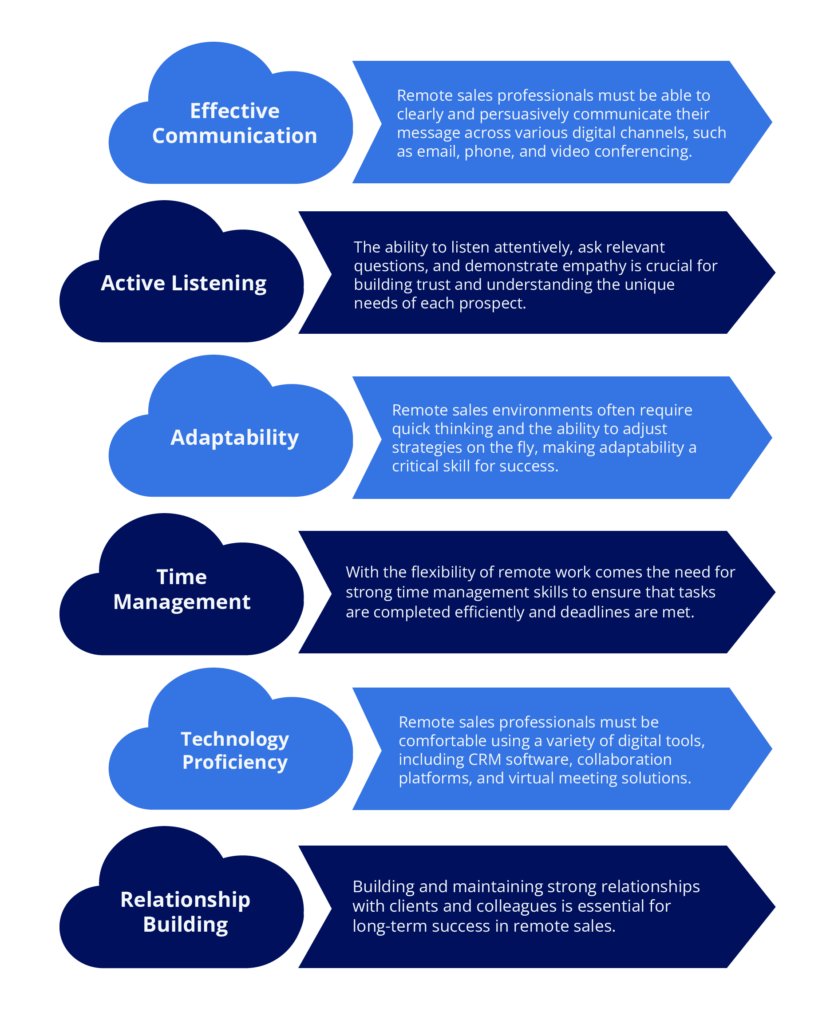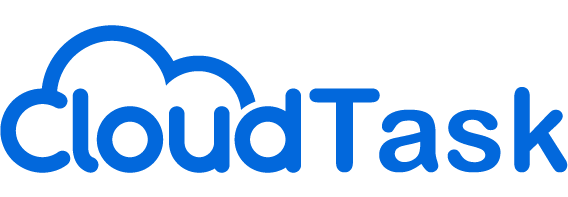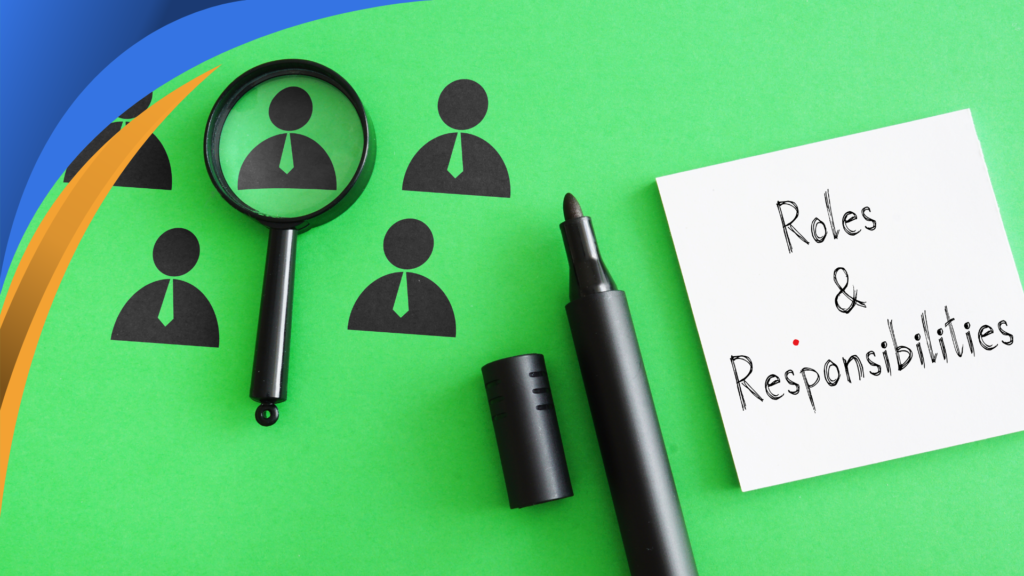Remote work has become the new normal and is expected to continue in the future.
Research by SHRM shows that 48% of workers plan to look for work from home sales jobs for their next position.
As companies adapt to this new reality, work from home sales jobs have become one of the most popular and in-demand remote career paths.
Remote work offers numerous benefits for both employers and employees, including flexible schedules, reduced stress levels, improved recruitment and retention, and access to a broader pool of job opportunities.
In this article, you will discover the most popular work from home sales jobs, the essential skills you need to excel in these roles, and how you can use your LinkedIn profile to land your ideal job in this dynamic and expanding field.
What Are the Skills Needed for Success in Work From Home Sales Jobs?
Remote sales is an increasingly competitive industry.
As a result, sales professionals must possess a unique set of skills that allow them to differentiate themselves and effectively handle the challenges that come with work from home sales jobs.
These skills extend beyond traditional sales techniques and require a deep understanding of how to build relationships, communicate effectively, and use technology to achieve results in a remote environment.
The key skills needed for success in work from home sales jobs include:

Remote sales professionals need to possess critical skills and be proactive in their approach to learning and development.
It’s important to keep up with the latest trends, techniques, and technologies in sales as the industry is constantly evolving.
To remain competitive, it’s essential for remote sales professionals to invest in their skills and knowledge continuously. This way, they can position themselves for long-term success and growth in their careers.
The 5 Most Wanted Work-from-Home Sales Jobs
Sales Development Representative (SDR)
The Sales Development Representative (SDR) is a critical part of the sales process and is responsible for identifying, connecting with, and evaluating potential leads at the initial stages of the sales cycle.
Once qualified, these leads are then passed on to account executives for closure. This specialization enables SDRs to focus on generating a continuous flow of high-quality opportunities, ensuring a strong pipeline for the sales team to work with.
Key responsibilities of an SDR include:
- Conducting outbound prospecting through cold calling, emailing, and social selling to identify potential customers.
- Qualifying leads based on predefined criteria to ensure they align with the company’s ideal customer profile.
- Setting appointments and generating sales-qualified leads (SQLs) for account executives.
- Collaborating with marketing teams to refine lead generation strategies and provide insights from prospect interactions.
- Maintaining accurate and up-to-date records in the company’s CRM system.
To be successful in the role of a Sales Development Representative (SDR), it is crucial to possess exceptional communication skills, both written and verbal, along with strong active listening abilities.
SDRs must be persistent and able to handle rejection while also adapting to the unique needs and preferences of each potential customer.
Proficiency in sales technologies like CRM software and sales engagement platforms is also highly essential for success in this position.
Account Executive (AE)
The role of an Account Executive (AE) is vital in the process of managing and closing deals with potential clients, with the ultimate goal of turning them into loyal customers.
It is a job that requires a deep understanding of the product or service being offered, as well as the ability to identify and address the unique needs and concerns of each client.
Successful AEs should possess excellent negotiation skills, the ability to build strong relationships, and strategic thinking abilities to drive revenue growth by ensuring customer satisfaction.
Key responsibilities of an Account Executive include:
- Conducting discovery calls and meetings to understand the client’s needs, challenges, and objectives.
- Developing and presenting tailored solutions that address the client’s specific requirements.
- Negotiating contracts and closing deals that align with the company’s revenue goals and the client’s budget.
- Building and maintaining strong, long-term relationships with clients to ensure retention and identify upsell opportunities.
- Collaborating with cross-functional teams, such as marketing, product, and customer success, to deliver a seamless client experience.
To excel in the role of an Account Executive, it is essential to have exceptional communication and active listening skills.
They should be comfortable working in a fast-paced, target-driven environment and possess creative thinking abilities to overcome objections and secure deals.
Familiarity with sales methodologies such as solution selling, as well as proficiency in CRM systems and other sales technologies, are also crucial to succeed in this position.
Business Development Representative (BDR)
The role of a Business Development Representative (BDR) is to identify and qualify new business opportunities. This is primarily achieved through outbound prospecting and lead generation techniques.
The BDR plays a pivotal role in filling the sales pipeline with high-quality leads that have the potential to convert into long-term, valuable customers.
Key responsibilities of a Business Development Representative include:
- Conducting market research to identify potential prospects that align with the company’s ideal customer profile.
- Executing outbound prospecting campaigns using tactics such as cold calling, email outreach, and social selling.
- Qualifying leads based on predefined criteria, such as budget, authority, need, and timeline (BANT).
- Scheduling appointments or demos for qualified leads with the appropriate sales team members.
- Collaborating with marketing and sales teams to refine messaging, target audiences, and outreach strategies.
To thrive in this role, Business Development Representatives must possess strong research skills, attention to detail, and the ability to communicate value propositions clearly and concisely.
Familiarity with outbound sales technologies, such as sales engagement platforms and lead generation tools, is also important for maximizing productivity and effectiveness.
Customer Success Manager (CSM)
The Customer Success Manager (CSM) is in charge of the customer success team, whose role is to ensure customers achieve their desired outcomes and maximize the value they derive from a company’s products or services.
Assisting customers proactively to achieve their desired outcomes while using your product is the goal of customer success. The department anticipates potential problems and challenges that customers may face and offers appropriate solutions to enhance their experience.
A CSM’s primary responsibilities include:
- Onboarding new clients and ensuring a smooth transition from the sales process to the post-sale experience.
- Developing a deep understanding of each client’s unique goals, challenges, and success metrics.
- Conducting regular check-ins, providing training, and offering proactive support to help clients maximize their use of the product or service.
- Identifying potential issues or risks early on and working collaboratively to address them before they impact the client’s success.
- Serving as an advocate for the client’s needs, collaborating with internal teams such as product development and marketing to drive continuous improvement.
To be successful in the role of a Customer Success Manager, individuals should possess a unique combination of skills, including strong relationship-building abilities, empathy, and a genuine passion for helping others succeed.
They should be proactive problem-solvers, able to anticipate client needs and develop creative solutions to address them. Familiarity with customer success technologies, such as client health dashboards and feedback management systems, is also crucial for streamlining processes and driving efficiency.
As the subscription-based business model continues to gain prominence, the role of the Customer Success Manager is becoming increasingly critical to the long-term success of organizations.
Sales Manager
The Sales Manager plays a critical role in any organization by overseeing and leading the sales team’s performance.
Their primary objective is to develop and execute sales strategies that are in line with the company’s goals.
Key responsibilities of a Sales Manager include:
- Setting sales targets and quotas based on a thorough analysis of historical data, market trends, and company objectives.
- Developing sales plans that incorporate various techniques, strategies, and best practices to optimize team performance.
- Providing ongoing training, coaching, and mentorship to sales team members, identifying areas for improvement and implementing targeted development programs.
- Monitoring sales performance metrics, analyzing data, and making data-driven decisions to optimize processes and strategies.
- Collaborating with cross-functional teams, such as marketing, product development, and customer success, to ensure alignment and drive overall company growth.
Great sales managers must possess not only technical skills but also strong interpersonal and leadership qualities.
As remote work becomes increasingly common, sales managers must adjust their management styles and strategies to meet the specific needs of a dispersed team. This may involve implementing remote training and finding innovative methods to keep team members engaged and connected despite the physical distance.
How to Build Your LinkedIn Profile for Work-from-Home Sales Roles
LinkedIn has become an essential platform for professionals who want to exhibit their skills, experience, and personal brand to potential employers.
With remote work gaining popularity, especially in the sales industry, improving your LinkedIn profile to attract the attention of companies offering work from home sales jobs has become more crucial than ever.
Here are some tips and best practices to optimize your LinkedIn profile:

Conclusion
With an increasing number of companies adopting remote work, there are now more opportunities for talented sales professionals to build rewarding careers from the comfort of their own homes.
If you’re ready to take your career to the next level and explore the exciting possibilities of remote sales, CloudTask Marketplace is here to assist you.
We connect ambitious professionals like you with top companies that are actively seeking remote talent for various Sales and RevOps roles, including Sales Development Representatives, Account Executives, Business Development Representatives, and more.
Don’t let this chance slip away – your dream work from home sales jobs is closer than you think.
Head over to the CloudTask Marketplace today and create your profile to showcase your unique skills, experience, and passion for sales.








